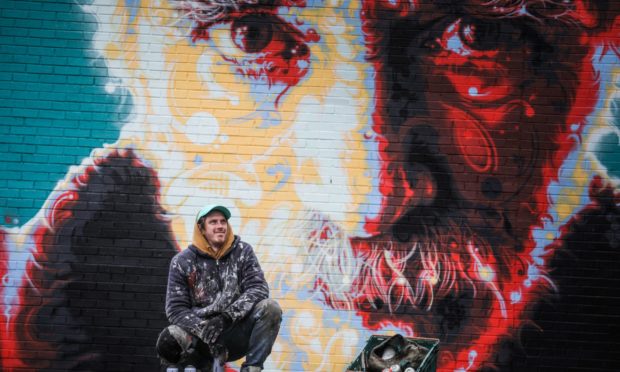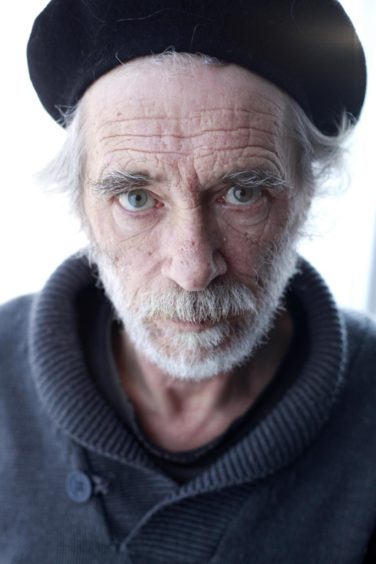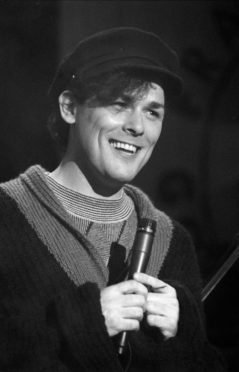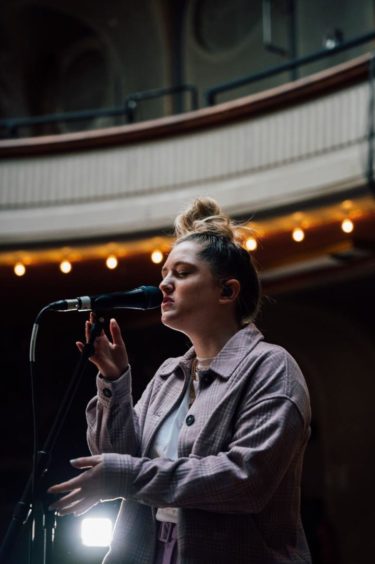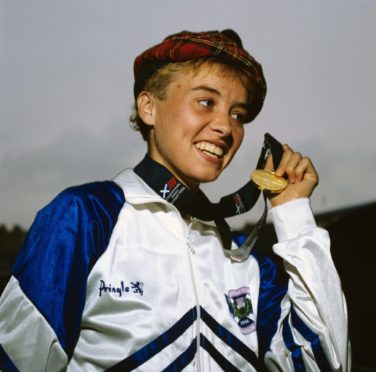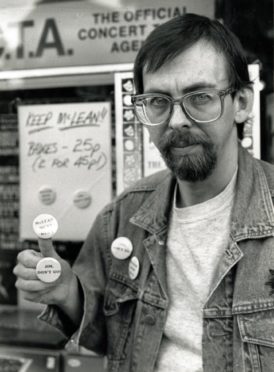Last Wednesday, on a dreich morning in Lochee, I came face to face with one of my musical heroes.
That steady gaze, always interested, ever-inquiring, but unfortunately now unaccompanied by a list of probing questions.
Michael Marra made most of us feel small intellectually. Now his face, depicted by artist Michael Corr in a new mural in Aimer Square for Love Lochee, dwarves all around him.
Standing 9m x 4.5m, the brightly coloured and playful mural is the latest in a line of tributes to the man who left us almost nine years ago, but whose influence is still strong.
If anything sums up the importance of paying tribute to our favourite local sons and daughters, it was a passing local man who shouted up to the artist: “Good work son.”
He then turned to me and said: “It’s Michael Marra, eh? Eh dinna actually ken much aboot the music, but seemingly he was a bra’ boy.”
He was sent off with a recommended starter playlist.
If Michael Marra had come from Liverpool or La Paz or Ljubljana, he would have been as musically and literally dextrous, I’m sure.
But he didn’t. He came from Lochee, Dundee, and it shaped him – as our environment shapes us all.
There’s no doubt that Dundee was his heart, and he wore that heart on his sleeve proudly. That made him even more precious to Dundonians in particular.
Unique talents for a singular city
Local heroes are important, particularly to a city like Dundee, which spent too many years as a second-class city.
And it has to be said, per head of population, we’ve produced individuals who aren’t only ludicrously talented but unique in those gifts.
Another of Dundee’s most missed sons is Billy Mackenzie. Again, since his death, there have been many books, plays, and artworks celebrating him.
The most recent accolade, of course, was the unanimously positive reaction to a new street being named for him in Stobswell.
Again, Billy had a relationship with his home city that made us feel closer to him. We saw him on Top of the Pops on Thursday, then walking among us in the city centre a few days later.
When you see people, who were made from the same geographical stuff as you, succeeding on a wider stage, it gives the young Dundonian some hope.
Perhaps for the next generation that mantle has fallen to the likes of Kyle Falconer and Be Charlotte.
Maybe there’s something about the city.
Actor Brian Cox might be a Brooklyn resident now but it’s clear where his heart lies.
Like most Dundonians, Brian is also “no’ backwards at comin’ forwards” and is happy to voice his opinions.
To the point of convincing a production company that his character in Succession should be from Dundee and persuading them to film an episode in the city.
As a child I heard tales of his dad, Chic Cox, who owned a shop in Charles Street. My parents, at that time both 18 and with a young baby in their first single end, always told me that without his help they would have struggled even more during the first year of their marriage.
Maybe I was fortunate to attend a school that produced some supremely talented people. St Saviour’s High School (1973 to 2008) gave us musical heroes in the shape of Gary Clark, Ged Grimes and Kit Clark (Danny Wilson and more). There was also a chess Grandmaster in Paul Motwani.
With Liz McColgan, then Lynch, I marvelled at her athletic achievements of gold and silver medals in global events. I still only run to catch departing trains though.
The iconic strong Dundee woman has long been an inspiration. I’m of the generation who had school visits by Marilyn Gillies Carr, a woman born with no arms who managed to get through her daily activities, including driving, using her feet.
Thanks to a book by the late, great Eddie Small (another much-missed Dundee son) we have easy access to the story of social reformer Mary Lily Walker.
His Four Marys play also featured Dundee philanthropist Mary Ann Baxter, as well as two Aberdeen-born Marys who moved to Dundee as children and are always associated with the city – Mary Slessor and Mary Brooksbank.
We’ll happily adopt our local heroes too – two of whom are inextricably linked in my mind.
Take Jim McLean, Dundee United’s greatest manager, and Alistair (Breeks) Brodie, who owned Groucho’s record shop, from 1976 until his death in 2019.
The fact that a son of Edinburgh (Breeks) was instrumental in the campaign to keep Jim (the Lanarkshire boy) at Dundee United when Rangers made overtures speaks volumes.
Dundee isn’t alone in this. There’s pride and respect in local boys and girls “done good” everywhere. But here, I genuinely feel they have as much respect for the city as the city has for them.
